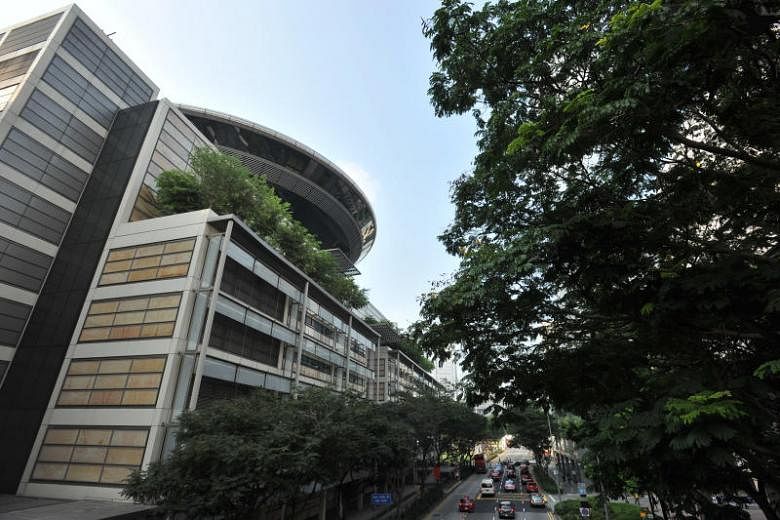SINGAPORE - Some 50 wide-ranging legislative changes have been proposed by the Ministry of Law to the Criminal Procedure Code (CPC) and Evidence Act.
Broadly, they cover the powers of investigators, court procedures and evidence, and sentencing and other powers of the court.
Here are nine of the key changes being proposed, divided into two main categories.
Enhancing the fairness of existing procedures
1. Introducing video recording of interviews
- Law enforcement agencies will be able take statements from witnesses either in writing or via video recording. For some offences, suspects' statements must be taken via video recording.
- Video recording will enable the court to quickly determine voluntariness and weight by showing the flow of the interview and the demeanour of the interviewer and interviewee.
- Safeguards will be introduced to prevent misuse of the video-recorded statements.
- Video-recorded statements of vulnerable victims, such as victims of serious sexual offences, can be used in place of their oral evidence-in-chief, to minimise the trauma they face in repeatedly recounting their ordeal.
2. Streamlining pre-trial procedures in the High Court - extending the transmission procedure to replace the committal hearing procedure
- Presently, most cases to be tried in the High Court go through an additional committal hearing to determine if there is sufficient evidence to commit an accused person for trial.
- Cases involving serious sexual offences go through a separate transmission procedure, where the case is automatically transmitted to the High Court for trial without the need to hold a committal hearing.
- It is proposed to extend the transmission procedure to all cases to be tried in the High Court to replace the committal hearing process so as to streamline procedures for all cases for trial before the High Court.
3. New procedures to prevent abuse of court process in concluded criminal cases
- There have been a growing number of applications for re-opening of criminal cases where all avenues of appeal have been exhausted. The Court of Appeal observed that some of these applications were abuses of the process of the court. Amendments are proposed to strike a balance between preventing miscarriages of justice and the need for finality in criminal proceedings where all appeals have already been exhausted.
- The court will be given more control over applications to re-open concluded criminal cases where all appeals have been exhausted (and civil applications that have a similar effect), through a requirement of leave of court, a power of summary dismissal, and a power to hear and determine all related matters in a single hearing.
- In any event, only one application to re-open a concluded criminal case where all appeals have been exhausted will be allowed, with no further appeal from that application. Strict time-lines will also be imposed to avoid delay.
- The arguments and evidence raised to support such applications will be required to meet a number of requirements. They must be new, such that they could not have been produced earlier with reasonable diligence. They must also be able to compellingly show that there was a miscarriage of justice. The court decision being challenged must also be shown to be clearly wrong or affected by fraud or a breach of natural justice.
4. Establishing a Criminal Procedure Rules Committee
- Society is changing rapidly, making it more important that criminal court procedure be nimble and up-to-date.
- A Criminal Procedure Rules Committee chaired by the Chief Justice will be set up to create rules relating to court procedure.
- Committee will comprise representatives from the Judiciary, the Attorney-General's Chambers, the bar, and the Government.
Ensuring the accuracy and equity of outcomes in the criminal justice system
5. Enhancing protection for complainants of sexual and child abuse offences during the court process
- It is important to minimise the trauma faced by persons who complain of sexual or child abuse offences.
- Complainants' identity will be automatically protected from publication from the moment the offence is reported, and in camera (closed-door) hearings will also be automatic when they are testifying in court.
- Physical screens may be used in court to shield them from the accused person.
- They may not be asked questions about their sexual history and behaviour that do not relate to the charge, including their appearance, unless the court gives permission.
6. Strengthening the bail regime
- Securing cooperation with investigators and attendance in court through bail is essential to doing justice in criminal cases.
- The courts' powers concerning bail will be clarified and enhanced e.g. electronic tagging will be made a possible bail condition.
- Those who wish to become sureties (bailors) must provide evidence that they have the means to cover the amount of money pledged.
- It will be an offence to abscond while on bail, leave jurisdiction without permission when one's travel documents have been impounded by investigators, or to agree to indemnify a surety (or for a surety to agree to be indemnified).
7. Regulating psychiatric expert evidence
- Psychiatric expert evidence is increasingly common in criminal proceedings. However, the courts have observed in past cases that the psychiatrists who gave evidence in those specific cases lacked competence or objectivity.
- It proposed that psychiatrists will only be allowed to give expert evidence in criminal cases if they are on a court-administered panel of psychiatrists.
- This will ensure that evidence given by psychiatrists in court is competently arrived at and objective, which is in the interest of all parties to a case.
- The law will specify the qualifications and other criteria needed to be admitted to this panel.
- If psychiatrists are not sufficiently objective or competent as expert witnesses, they may be removed from the panel or refused re-admission to it.
8. Expanding the community sentencing regime
- Amendments are proposed to expand, in a controlled way, the number of offenders who are eligible for community sentences. This will allow more offenders to benefit from rehabilitative opportunities.
- Offenders who have a previous short sentence of imprisonment or a previous sentence of Reformative Training will be eligible for community sentences.
- More offences will be eligible for Mandatory Treatment Orders (which require the offender to undergo treatment for mental health conditions), and the flexibility of such orders will be enhanced.
- Courts may impose a suspended imprisonment sentence together with a community sentence. Upon breach of the community sentence, this imprisonment sentence will automatically apply. This will encourage compliance with the community sentence.
9. Improving the victim compensation order regime
- At present, criminal courts have the power to order compensation payments to victims when they sentence the accused person. Amendments are proposed to ease the process of victims obtaining compensation through the criminal courts.
- At present, the court is also obliged to actively consider whether or not to order compensation. It is proposed that where they do not order a compensation payment, reasons for not doing so are required to be given.
- The court will be empowered to order certain forms of compensation to the dependents of a victim whose death was caused by an offence.
- Victims will be able to participate in the compensation order process by giving evidence and making submissions, through a lawyer or personally.








